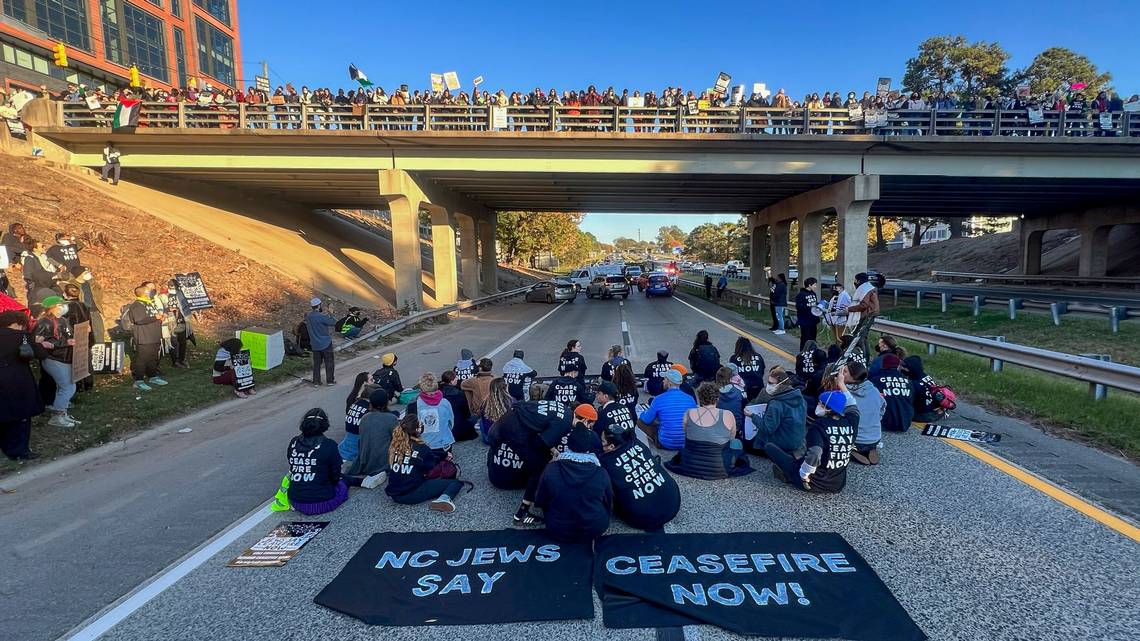
Pro-Palestinian activists have often disrupted traffic flow by obstructing roads and bridges, particularly during rush hours, prompting Senator Marsha Blackburn to introduce a new bill in response.
The legislation, called the Safe and Open Streets Act, aims to make it a federal offense punishable by fines or up to five years in prison to disrupt commerce by blocking public roads or highways.
Senator Blackburn emphasized that this behavior amounts to lawlessness and endangers both the activists involved and the public relying on those routes for emergency services or work commutes.
“Blocking major roads to stop traffic flows is nothing short of lawlessness that should not be tolerated,” said Ms. Blackburn. “These activists are not only intentionally creating a dangerous situation for themselves, but perhaps for a citizen who is awaiting an ambulance or a hard worker who will lose their job for being late.”
Following the deadly Hamas attack on Israeli civilians, these protests have surged nationwide, resulting in hundreds of arrests. Despite law enforcement actions, concerns have arisen about lenient treatment by some district attorneys, with many offenders reportedly receiving summonses or minimal penalties.
Senator Thom Tillis supported the legislation, highlighting the need to hold accountable those resorting to these disruptive tactics. He condemned these actions as not just an inconvenience to commuters but also potentially life-threatening.
“The emerging tactic of radical protestors blocking roads and stopping commerce is not only obnoxious to innocent commuters, but it’s also dangerous and will eventually get people killed,” he said. “It needs to be a crime throughout the country.”
Instances like the blocking of roads to Los Angeles and New York airports on one of the busiest travel days saw about 60 arrests, drawing criticism from New York City Mayor Eric Adams. He expressed a stance against such takeovers of streets and bridges, emphasizing the complexity of running a city while allowing unrestricted activities of this nature.
“I don’t believe that people should be able to just take over our streets and march in our streets,” Mr. Adams said. “I don’t believe people should be able to take over our bridges. I just don’t believe you can run a city this complex where people can just do whatever they want.”
The emerging tactic of radical protestors blocking roads and stopping commerce is not only obnoxious to innocent commuters, but it’s also dangerous and will eventually get people killed. It needs to be a federal crime throughout the country. That is why I am proud to introduce… pic.twitter.com/FRv2O2K5e1
— Senator Thom Tillis (@SenThomTillis) January 8, 2024









